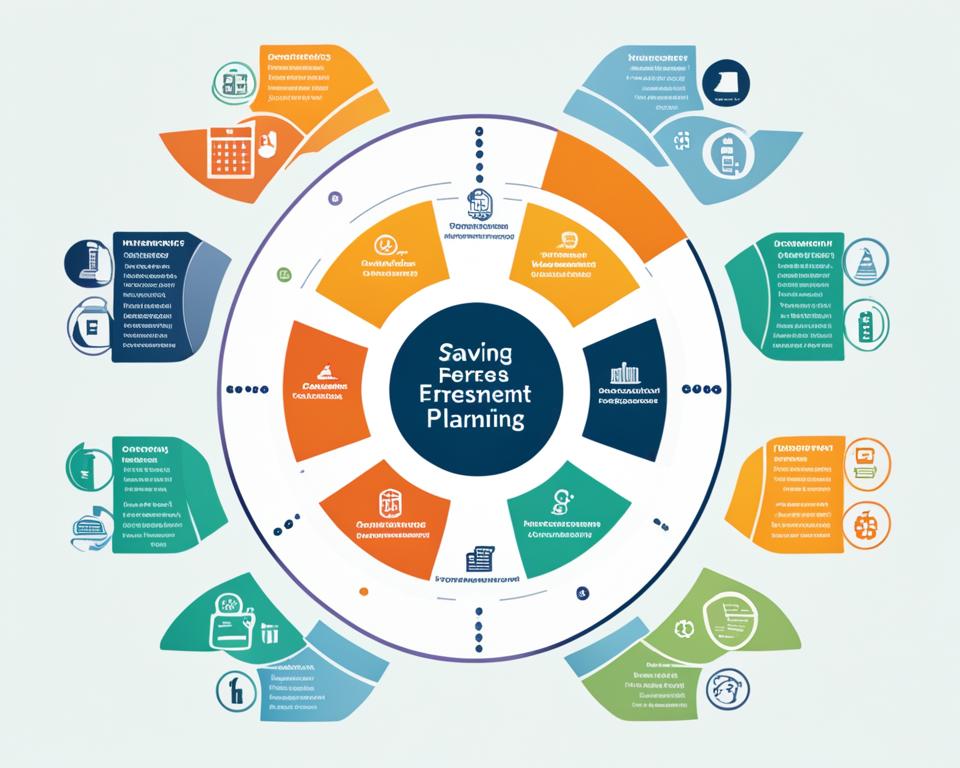Managing your personal finances is a crucial aspect of achieving financial stability and securing your long-term goals. Personal financial planning encompasses a wide range of areas, from budgeting and saving to investing, debt management, and retirement planning. Understanding the significance of personal finance is the first step towards taking control of your financial future and building a secure foundation for your wealth.
At the heart of personal finance lies the ability to effectively manage your income, spending, savings, and investments. By developing a comprehensive understanding of these core areas, you can make informed decisions that align with your financial objectives, whether it’s saving for a down payment on a house, planning for retirement, or reducing debt. Personal finance is not just about crunching numbers; it’s about cultivating financial literacy and making choices that empower you to achieve your dreams.
In this article, we’ll delve into the importance of personal financial planning, exploring strategies and tips that can help you organize your finances, reduce debt, and build a solid financial foundation. By implementing these practices, you’ll be well on your way to securing your financial future and achieving the level of financial freedom you desire.
What is Personal Financial Planning?
Personal financial planning is the process of managing your money effectively to achieve your financial goals. It involves a comprehensive approach to your finances, including budgeting, saving, investing, and debt management. By understanding the core areas of personal finance and the significance of personal finance in reducing debt, you can take control of your financial future and work towards financial stability and independence.
Understanding the Core Areas of Personal Finance
The five core areas of personal finance are:
- Income: This includes your sources of income, such as a job, investments, or side hustles.
- Spending: This covers your expenses, including fixed costs like rent or mortgage payments, and variable costs like groceries and entertainment.
- Savings: This refers to the money you set aside for emergency funds, retirement, or other long-term goals.
- Investments: This includes assets like stocks, bonds, or real estate that can potentially grow in value over time.
- Protection: This involves safeguarding your financial well-being through insurance, such as life, health, or disability insurance.
The Significance of Personal Finance in Reducing Debt
Personal finance also plays a crucial role in reducing debt. By developing budgeting and spending strategies, you can avoid accumulating excessive debt and focus on paying off existing obligations effectively. This can include strategies like:
- Creating a detailed budget to track your spending and identify areas where you can cut back.
- Prioritizing debt payments, starting with high-interest debts like credit cards.
- Exploring debt consolidation or negotiation options to lower interest rates and streamline payments.
- Increasing your income through side hustles or career advancements to accelerate debt repayment.
By understanding and addressing the core areas of personal finance, you can develop a comprehensive strategy to reduce debt, build savings, and achieve your financial goals. This is the foundation of effective personal financial planning.

The Importance of Personal Financial Planning
Personal financial planning is a crucial step towards achieving financial stability and reaching your long-term financial goals. Research has shown that individuals with a written financial plan feel more financially secure and confident in their ability to overcome obstacles and make progress towards their objectives.
Crafting a comprehensive personal financial plan provides a roadmap for your financial journey. It helps you establish measurable goals, whether it’s saving for a down payment on a home, paying off debt, or building a comfortable retirement fund. By having a plan in place, you can make informed decisions and take proactive steps to stay on track.
Even for those with limited financial resources, personal financial planning can have a profound impact. It can instill healthy budgeting and saving habits, empowering you to make the most of your income and assets. With a clear understanding of your current financial situation and a plan to address any challenges, you can work towards a more stable and secure financial future.
“A goal without a plan is just a wish.” – Antoine de Saint-Exupéry
Personal financial planning is not just about the numbers; it’s about aligning your financial decisions with your values and priorities. By taking the time to reflect on your long-term aspirations and creating a plan to achieve them, you can experience a sense of control and confidence in your financial well-being.

In conclusion, the importance of personal financial planning cannot be overstated. It provides the framework and motivation needed to build financial stability, overcome obstacles, and ultimately, reach your most cherished financial goals. Whether you’re just starting your journey or looking to refine your approach, embracing the power of personal financial planning can be a transformative step towards a more prosperous and fulfilling future.
Strategies for Effective Personal Financial Planning
Crafting a comprehensive personal financial plan is crucial for achieving your financial goals and securing your financial future. Let’s explore some proven strategies to help you manage your finances effectively.
Devise a Budget and Pay Yourself First
Creating a detailed budget is the foundation of personal financial planning. The popular 50/30/20 budgeting method is a great framework to consider. This approach allocates 50% of your income to essential expenses, 30% to discretionary spending, and 20% to savings and debt repayment. By paying yourself first and automating your savings, you can ensure that your financial priorities are met consistently.
Limit and Reduce Debt Effectively
Debt, especially high-interest debt like credit cards, can be a significant obstacle to achieving your Personal Financial Planning Strategies. Develop a plan to limit new debt and focus on paying off existing obligations, starting with the highest-interest debt. Explore strategies such as debt consolidation, balance transfers, or negotiating with creditors to reduce interest rates and accelerate your debt reduction efforts.
Incorporating these Budgeting, Paying Yourself First, and Debt Reduction strategies into your Personal Financial Planning will help you take control of your finances, build wealth, and secure your financial future.
“Effective personal financial planning is the key to achieving your long-term financial goals and building a secure financial future.”
Developing Healthy Financial Habits
Developing healthy financial habits is crucial for achieving long-term financial success. This includes tracking your spending and income, creating a realistic budget, and sticking to it, as well as prioritizing savings and investments. Maintaining financial discipline, such as avoiding impulse purchases and living within your means, can help you make better money management decisions and reach your goals.
One of the foundational healthy financial habits is tracking your income and expenses. By closely monitoring your cash flow, you can gain a clear understanding of where your money is going and identify areas where you can cut back on spending. This information can then be used to create a realistic budget that aligns with your financial goals, whether it’s paying off debt, building an emergency fund, or saving for a large purchase.
Another crucial habit is prioritizing savings and investments. By automating your savings, you can ensure that a portion of your income is consistently set aside for the future, even before you have a chance to spend it. This disciplined approach to Healthy Financial Habits can help you steadily build wealth over time.
Continuous education about personal finance is also key to developing healthy financial habits. By staying informed about the latest trends, strategies, and best practices in money management, you can empower yourself to make more informed decisions and adapt your financial plan as your needs and circumstances change.
“The secret to getting ahead is getting started.” – Mark Twain
Developing and maintaining Healthy Financial Habits takes time and effort, but the long-term benefits are immeasurable. By embracing Financial Discipline and a proactive approach to Money Management, you can set yourself up for financial success and achieve your personal and professional goals.
The Benefits of Working with a Financial Planner
Partnering with a professional financial planner can provide invaluable benefits for your personal financial planning journey. These experts can offer a comprehensive and holistic approach, helping you develop a customized plan to achieve both your short-term and long-term financial goals.
Research indicates that households that collaborate with a financial planner are more likely to make prudent financial decisions, demonstrating higher levels of portfolio risk management, savings habits, insurance coverage, and emergency savings. A financial planner can also provide valuable guidance and expertise to navigate the complexities of personal finance, from budgeting and debt management to investment strategies and retirement planning.
By tapping into the professional financial advice of a skilled financial planner, you can ensure a comprehensive financial planning approach that aligns with your unique financial needs and aspirations. This partnership can unlock significant advantages, empowering you to make informed decisions and pave the way towards a more secure and prosperous financial future.











